Business in Germany. German Foreign Trade

Germany: EU political leader, largest European economy, Berlin
- Introduction to the Federal Republic of Germany (EU)
- Germany: the most important political player of the EU
- Federated States of Germany
- Economy of Germany
- Germany as the European Economic Engine
- Economic Profile of the main cities of Germany
- German Industry
- German services sector
- German Foreign Trade
- Investment in Germany. German's investments abroad
- Case Studies:
- Allianz Group
- VOLKSWAGEN Group
- Bayer
- Henkel
- Access to the German Market
- Business Plan for Germany
The objectives of the subject “International Trade and Business in” the Federal Republic of Germany” are the following:
- To analyze the strengths of the German Economy and Global Trade
- To know the trade opportunities in the German Market
- To analyze the trade relations of Germany with the country of the student
- To know the German Free trade agreements as a member of the EU
- To understand the importance of Germany as the first European economy and the political leader of the EU
- To develop a business plan for the German Market

The Subject “Foreign Trade and Business in Germany” belongs to the following Online Programs taught by EENI Global Business School:
Doctorate: European Business, World Trade.
Masters: International Business, Foreign Trade.
Languages:  +
+  Alemania
Alemania  Allemagne
Allemagne  Alemanha.
Alemanha.
- Credits of the Subject “Doing Business in Germany”: 3

- Duration: three weeks
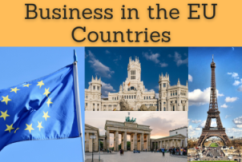
EENI Global Business School in German: Master in international business.
 Masters adapted to German Students.
Masters adapted to German Students.
International Trade and Business in Germany:
Germany: The leading European economy and the political leader of the EU.
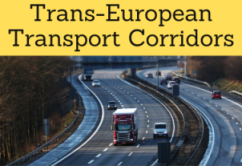
- Atlantic Corridor (Portugal-Germany)
- North Sea-Baltic Corridor (Finland, Belgium)
- Pan-European Corridor II (Russia-Germany)
- Access to the
- China-Mongolia-Russia Corridor
- Trans-Siberian Railway (Russia, North Korea)
- Baltic-Adriatic Corridor (Poland, Slovenia)
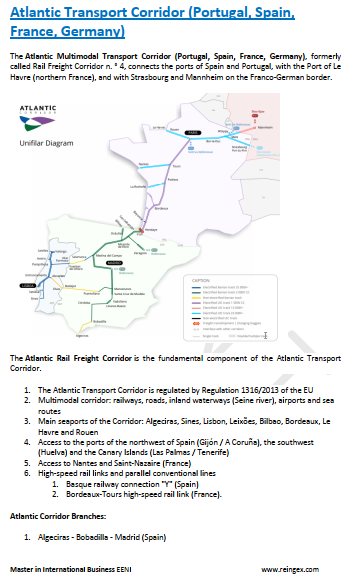
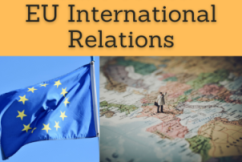

German Preferential Access and Trade Agreements:
- Germany and the European Economic Area
- The EU
- European Single Market
- The EU Services Directive
- European Digital Single Market
- Economic and Monetary Union
- European Customs Union
- As a member of the EU, Germany is a beneficiary of the EU Trade Agreements
- Council of the Baltic Sea States
- Regional Cooperation Council
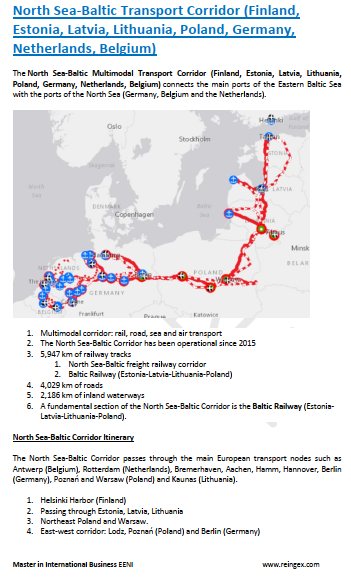
Germany is an observer country at the.
- Black Sea Economic Cooperation
- SICA
- IORA (dialogue partner)
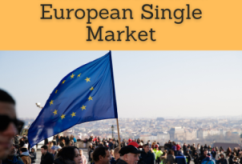

- WTO
- Agreement on Sanitary and Phytosanitary Measures
- Agreement on Trade in Services (GATS)
- Agreement on Technical Barriers to Trade
- Agreement on Preshipment Inspection
- Agreement on Safeguards
- Trade Facilitation Agreement
- WCO
- Convention Harmonization of Frontier Controls of Goods
- Hamburg Rules
- CMR Convention (UN)
- IRU
- TIR Convention
- Guidelines on Safe Load Securing for Road Transport
- COTIF Convention
- BIC (Containers)
- Chicago Convention (ICAO)
- IMO
- Convention for Safe Containers
- Istanbul Convention
- Customs Convention on Containers - not a member
- ICC
- International Rail Transport Committee (CIT)
- International Chamber of Shipping
- CIM / CIT Rules
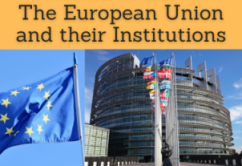
European Trade and Economic Organizations of Germany
- The EU
- International Bank for Reconstruction and Development
- OSCE
- UNECE

Global Organizations
Germany is a member, among others, of...
- Germany belongs to the WTO since 1 January 1995
- Inter-American Development Bank
- ECLAC
- Asia-Europe Meeting
- OECD
- OECD anti-corruption measures
- Asian Development Bank
- African Development Bank
- Islamic Development Bank
- UN
- WB
- IMF
At a regional level Germany is a founding member of the EU and the European Council. As a member of the EU, Germany is beneficiary of the EU Free trade agreements.
The Federal Republic of Germany (Europe).
- Borders of Germany: France, Belgium, Luxembourg, the Netherlands, Denmark, Poland, the Czech Republic, Austria, and Switzerland
- Capital of Germany: Berlin
- Language of Germany: German
- Area of Germany: 357,022 km²
- German Population: 82 million people
Religion in Germany: Christianity.
- Catholicism (50%)
- Protestants

Germany belongs to the European Economic Area.
- The Nobel Peace Prize Albert Schweitzer was born in Germany
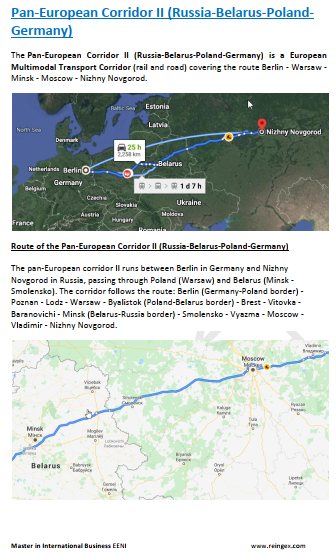
German Economy
- With a GDP of 2,423 trillion Euros, the Federal Republic of Germany is:
- The Largest European Economy
- The Third largest economy in the world
- The Fifth largest economy (Purchasing Power Parity)
- One of the largest industrialized nations
- Frankfurt is the financial centre of the Federal Republic of Germany (the largest stock exchange in Europe)
- The industry is the largest pillar of the German economy (25% of the GDP, 8 million workers)
- Secondary sector: 30% of the GDP of Germany, 25% of the workforce of the Federal Republic of Germany (10 million people)
- The services sector is the largest of the German economy (70% of theGDP)
- The main German companies are Volkswagen, Daimler, Porsche, Siemens, Continental, BMW, Basf, Bayer, Beiersdorf, DHL, Bosch, Infineon, Deutsche Telekom, ThyssenKrupp, Bertelsmann, Lufthansa, SAP, Adidas, Hugo Boss
- The European Central Bank (ECB) is in Frankfurt
- Decentralized EU Agency in Germany: the European Aviation Safety Agency (EASA): Cologne

German Foreign Trade.
- Germany is the second largest exporting country in the world (total imports from Germany correspond to those of France and Italy together), with its annual trade surplus of 160 billion euros
- The main German exports: machinery, vehicles, metals, chemical products, textiles, manufactures and food products
- The main German imports: machinery, foods, chemical products, textiles, vehicles and metals
- The largest German port is the Port of Hamburg
- With a total of 995 Billions Euros in export products, Germany obtained a surplus in its trade balance of 176 Billions Euros
- Germany controls 20% of the world's container ships (international maritime trade)
(c) EENI Global Business School (1995-2024)
We do not use cookies
Top of this page



